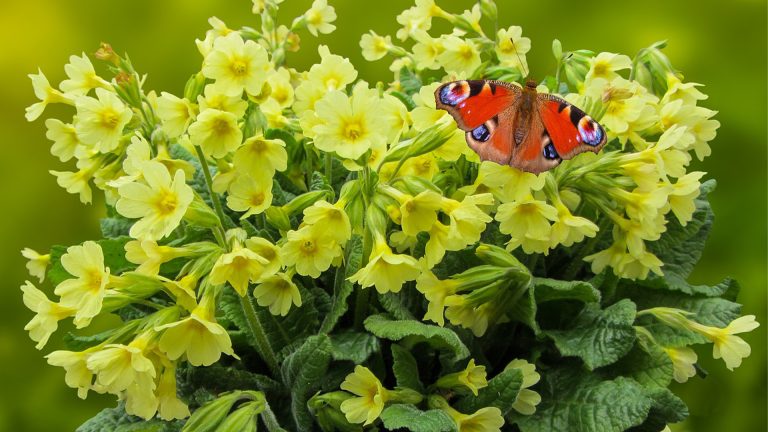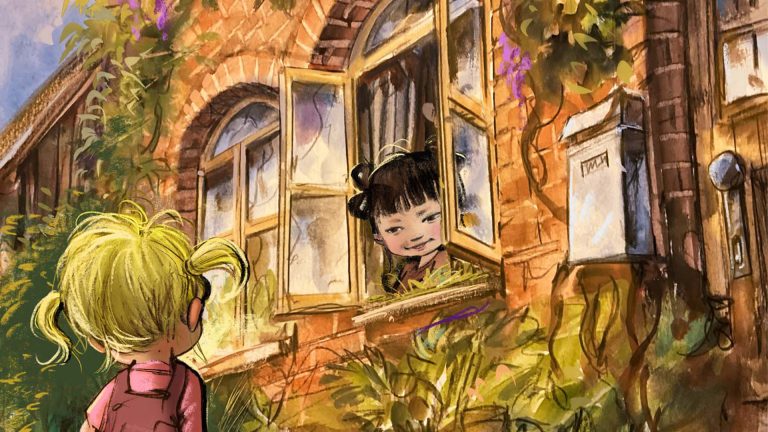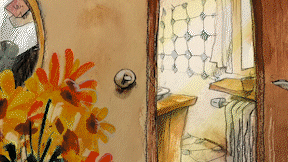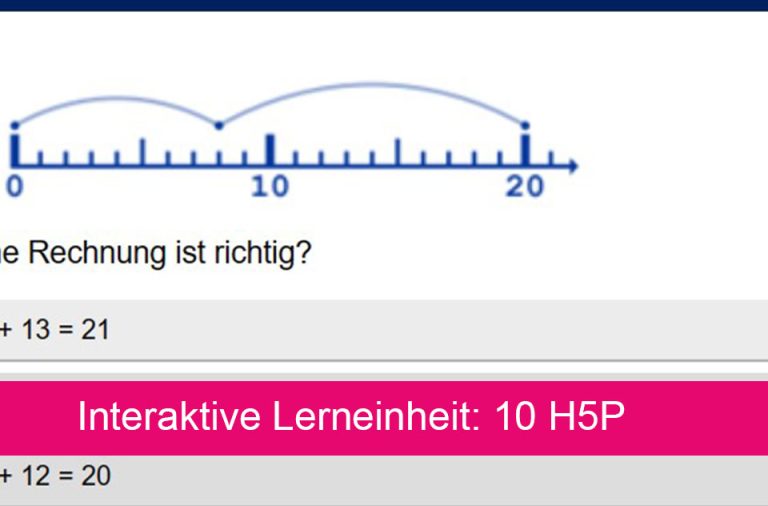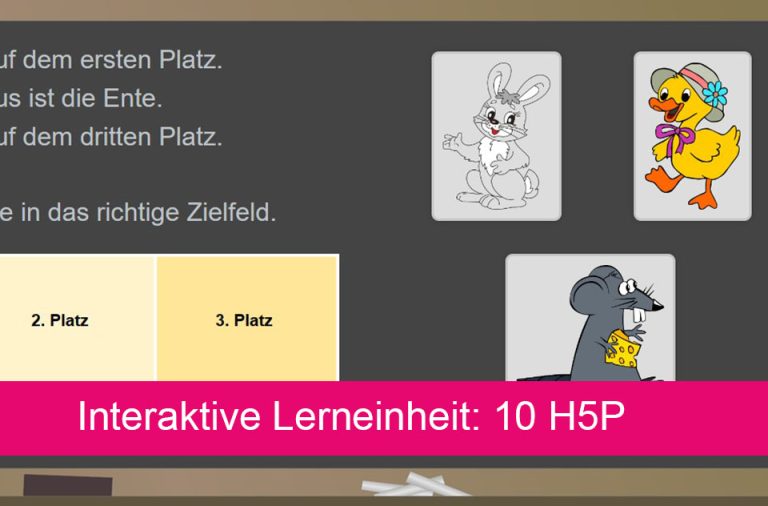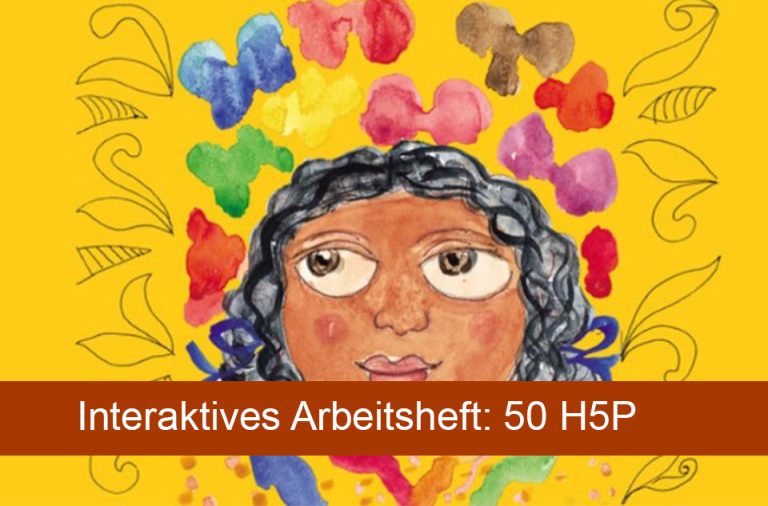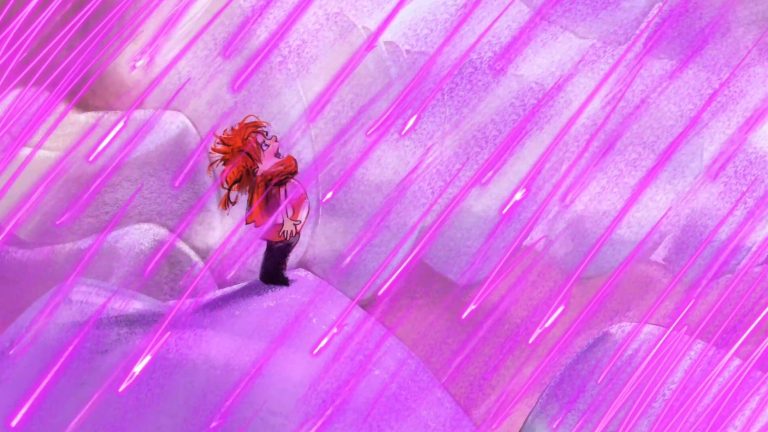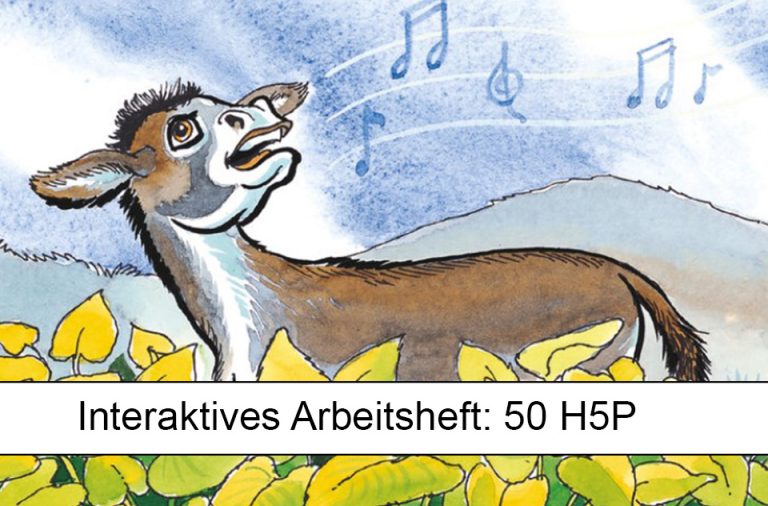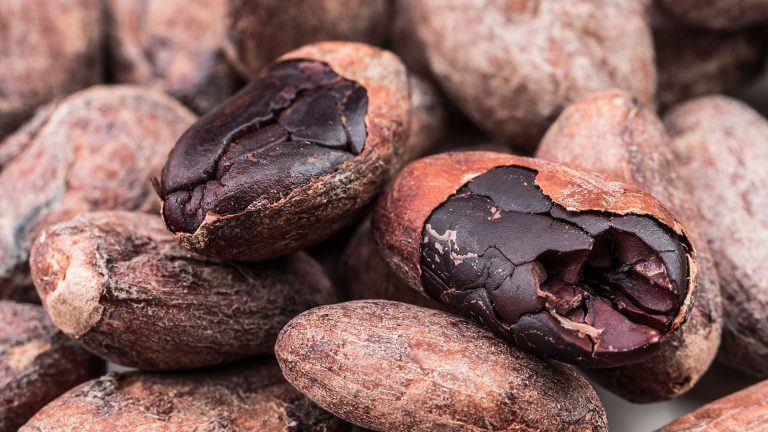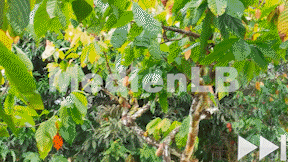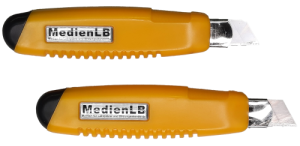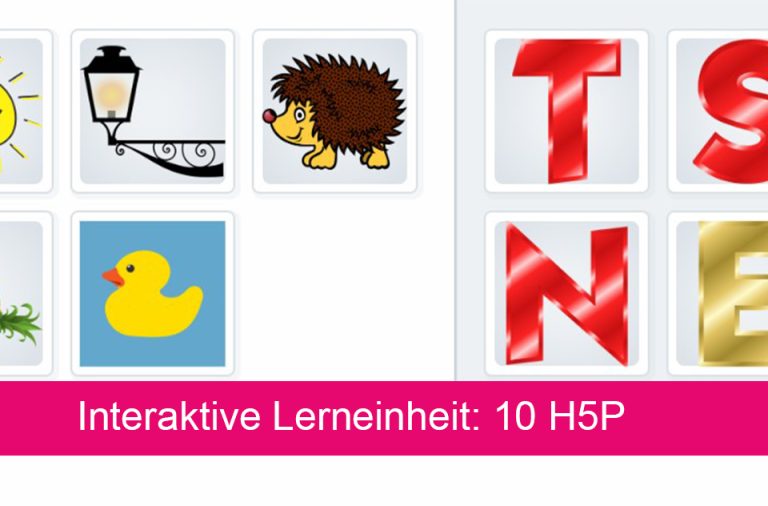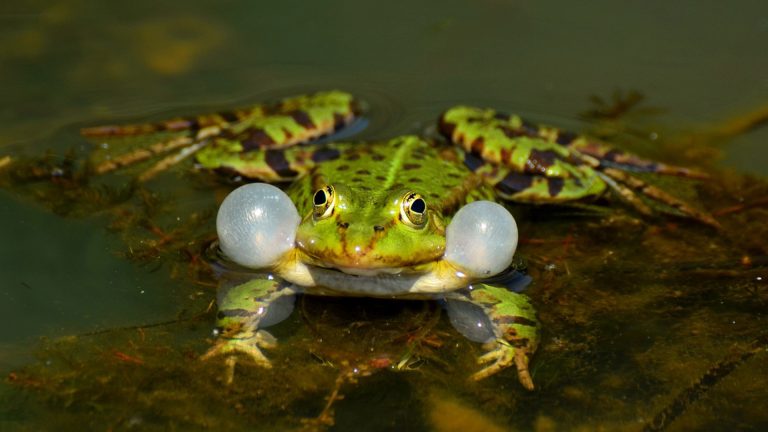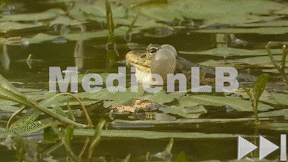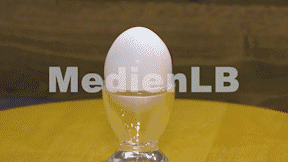Suche:
- # Artistry
- # Biology
- # Chemistry
- # Ecological
- # Economy
- # English
- # Foreign Language
- # Geography
- # German
- # Health
- # History
- # Informatik
- # Latin
- # Mathematics
- # Media Education
- # Music
- # Physics
- # Politics / Civics
- # Preschool
- # Primary School
- # Religion
- # Society
- # Sports
- # Technology
- # Training of Teachers
- # Vocational Education
Heimische Schmetterlinge
Schmetterlinge (Lepidoptera) zählen mit derzeit etwa 160.000 beschriebenen Arten zu den Insekten. Bis auf Antarktika gibt es sie überall auf der Welt.
Learn moreDer große Habenhunger
Anna besucht ihre Freundin Wanda und belegt sich den größten Burger der Welt. Alles, was sie sich wünscht, packt sie darauf und isst ihn.
Learn moreLerneinheit Mathematik 4
In zehn unterschiedlich digital gestalteten Aufgaben üben die Schülerinnen und Schüler die Grundrechenarten anhand der Darstellung auf dem Zahlenstrahl.
Learn moreLerneinheit Deutsch 4
Zehn interaktiv gestalteten Aufgaben unterstützen die Schülerinnen und Schüler in ihrer Lese- und Verstehensfähigkeit und in der Entwicklung logischer Denkprozesse.
Learn moreLerneinheit Deutsch 2/3
Zehn interaktiv gestalteten Aufgaben unterstützen die Schülerinnen und Schüler in ihrer Lese- und Verstehensfähigkeit und in der Entwicklung logischer Denkprozesse.
Learn moreSpanisch 5/6, Vol. 1
Die Aufgaben sind mit der Software H5P-Aufgaben gestaltet und können unmittelbar und ohne zusätzliche Software angewendet werden. Lernen macht jetzt Spaß!
Learn moreKamishibai Vol. 5
Das Medium bietet H5P-Aufgaben an, die ohne zusätzliche Software verwendbar sind. Das Medium enthält Texte und interaktive Aufgaben zum Thema Bildergeschichten.
Learn moreDas Geschäft mit Kakao
Die Olmeken, Maya und Azteken sahen in Kakao ein göttliches Geschenk – er galt als Opfergabe, Medizin und Zahlungsmittel. Auch heute wird Kakao als marktwirtschaftliches Produkt an der Börse gehandelt.
Learn moreLerneinheit Deutsch 1
In 10 interaktiven Aufgaben beschäftigen sich die Lernenden mit Anlauten, Silben und Wortanfängen.
Learn moreFrosch und Kröte
Frösche und Kröten sind Amphibien und gehören zur Ordnung der Froschlurche.
Learn moreVogelei
Das Hühnerei ist das bekannteste Vogelei. Nicht nur, dass ihm Küken entschlüpfen, es landet auch als Backzutat im Kuchen, oder als Frühstücksei auf unseren Tellern.
Learn more



